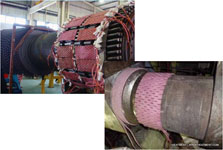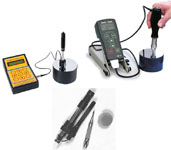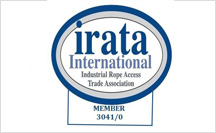Contact us for help?
Contact with us through our representative or submit a business inquiry online.
Pre-Heat Services
The heat applied to the base metal or substrate to attain and maintain preheat temperature is called pre heating.
The right preheat and interpass temperature is important in order to avoid hydrogen cracking.
Preheating may be performed by the use of gas burners, oxy-gas flames, electric blankets, induction heating, or by heating in a furnace. For good results, it is essential for the heating to be uniform around the joint area.
When preheating is specified, the entire weld joint should be heated evenly through the material thickness to the desired minimum temperature.
To obtain a uniform temperature through the material thickness, it is desirable to apply the heating sources to one side of the material surface and to measure the material temperature on the opposite side.
HEAT TREATMENT (Localized)
Post Weld Heat Treatment (PWHT) is a term that refers to any heat treatment that is applied to a material after welding. The process is often used to improve the properties of the weldment. In most cases, the goal of PWHT is to increase the resistance of

APPLICATIONS
Weld inspection – Structural / Piping
Casting / Forgings / Valves
TRACK RECORDS / SPECIALTIES
Pre-Heating / Post Weld Heat Treatment/Normalizing
250M Length FPSO Stones Turret done in Single Firing
50KVA Equipment / 270 KVA Imported Heavy Equipment
Resistance Method / Induction Method
FURNACE HEAT TREATMENT
We have dismantling type Furnace which is fabricated by many panels of structures, it can be re designed and re-sized.
APPLICATIONS
Heavy Structures such as turret / turret assemblies can be done in single firing
Many Pipe Spools can be done in short time 

TRACK RECORDS
Tullow Ten Sofec Turret
Scarv Turret
BP QUAD 204
HARDNESS TESTING
Hardness is a characteristic of a material, not a fundamental physical property. It is defined as the resistance to indentation, and it is determined by measuring the permanent depth of the indentation. More simply put, when using a fixed force (load)* and a

APPLICATIONS
Verification of Hardness after PWHT
Material Hardness verification after machining










